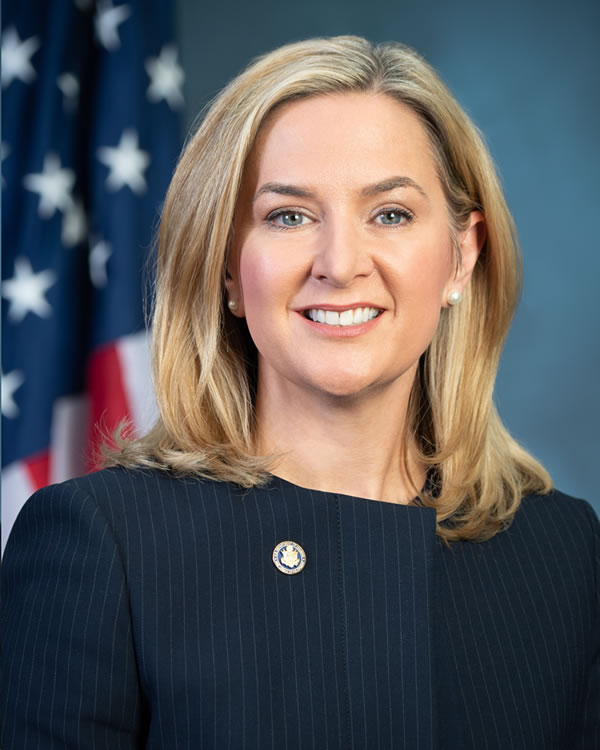Late last year, the U.S. Department of Housing and Urban Development (HUD) Office of the Inspector General (OIG) announced the launch of an inquiry into Ginnie Mae’s monitoring of now-bankrupt lender Reverse Mortgage Funding (RMF), and its extinguishment from the Home Equity Conversion Mortgage (HECM)-backed Securities (HMBS) program.
While the office has not yet issued any formal updates on the investigation, HUD Inspector General Rae Oliver Davis addressed the matter during a recent interview with HousingWire, where she discussed more broadly her office’s involvement in an investigation of the New York City Housing Authority (NYCHA).
Processes and risks
In December 2022, Ginnie Mae seized RMF’s HMBS portfolio due to the company’s bankruptcy, and the resulting stresses contributed to the decision to investigate, Oliver Davis explained at the time. Focusing first on her office’s oversight work, Oliver Davis said that any audits, reviews or investigations her office takes on are primarily driven by what are identified as the most significant risks to the HUD portfolio.
“GNMA guarantees investors will receive payments on more than $2 trillion of mortgage-backed securities,” she said. “We believe one of HUD’s top management challenges is managing counterparty risk, and within that space, having adequate capacity to handle troubled portfolios like RMF’s.”
 HUD Inspector General Rae Oliver Davis
HUD Inspector General Rae Oliver DavisNonbank liquidity, she said, represents a serious risk for Ginnie Mae, particularly as it plays out in the current reverse mortgage landscape, she said.
“There are only a small number of GNMA issuers that service reverse mortgage loans, and if one or more of those entities were unable to continue operating, it could create a very serious problem for GNMA,” she explained. “It is well known that GNMA’s onboarding of RMF’s portfolio caused significant stress for their operations.”
Ginnie Mae itself attested to this, detailing last year the strain that its assumption of the RMF portfolio placed on its resources, complicated by congressional budget debates that could have an impact on Ginnie Mae’s overall posture.
“GNMA has a very small number of full-time employees, especially when compared to Fannie Mae and Freddie Mac, and they rely heavily on contractor support,” Oliver Davis said.
A ‘critical incident’ for HMBS program
Oliver Davis and those in her office see the RMF default as “a critical incident within GNMA’s program,” she explained. The goal for the office as it reviews the situation is “to investigate what led to the default and why it occurred,” which includes a holistic look at everything leading up to the event itself.
“This will include us assessing how GNMA was monitoring and working with RMF to manage risk in their operations over a course of several years,” she explained. “The intent is to identify whether there are opportunities for GNMA to make enhancements to their monitoring processes to better manage or mitigate the risk of potential critical incidents like this one.”
The OIG may not be able to say with certainty that the government-owned company can “fully mitigate that risk,” she explained, but are entering the review to examine the RMF default and “better understand the challenges GNMA faces in this space.”
No conclusions have been reached yet, since the work is currently in process, she said.
“Our review is ongoing and our team is working diligently to investigate the many facets of the situation,” Oliver Davis said. “We look forward to continuing our partnership with GNMA leadership to help strengthen and enhance their program, which provides liquidity for important government-backed homeownership programs.”
A source of risk
In November 2023, in the OIG’s report detailing the top management challenges facing HUD, the office explained that Ginnie Mae’s HMBS portfolio poses a “significant risk” to HUD in 2024, stemming from the current high interest rate environment and the company’s seizure of the RMF portfolio.
“HECM originations are much more affected by higher interest rates because higher interest rates decrease the funds available to the borrower through a HECM loan,” the report stated.
HMBS issuers must also buy HECM loans out of their HMBS pools when the borrower of a particular loan has taken 98% of the maximum claim amount, which requires issuers to advance the full balance of the loan before its assignment to HUD.
“In a market with increasing or sustained high-level interest rates, the cost of financing to fund these advances becomes increasingly expensive,” the November report explained. “At the same time, increasing rates may result in decreased new originations and refinances, which are significant sources of lender income.”
Even before the RMF event, issuer participation in the HMBS program had been too small to fully support it, the report suggested.
“In recent years, the total number of participants in the HMBS program has steadily declined,” the report said. “In 2019, the two remaining depository institutions exited the industry, resulting in Ginnie Mae’s HMBS program being comprised solely of nondepository institutions.”
The top four HMBS issuers comprised 86% of the total market at the time the report was published, and Ginnie Mae’s move to seize the RMF portfolio was unprecedented since it marked the first time in the government-owned corporation’s history that it had ever extinguished an issuer with an HMBS portfolio.
“Assumption of another defaulted HMBS portfolio could significantly challenge Ginnie Mae’s capacity,” the report added.












 English (US) ·
English (US) ·